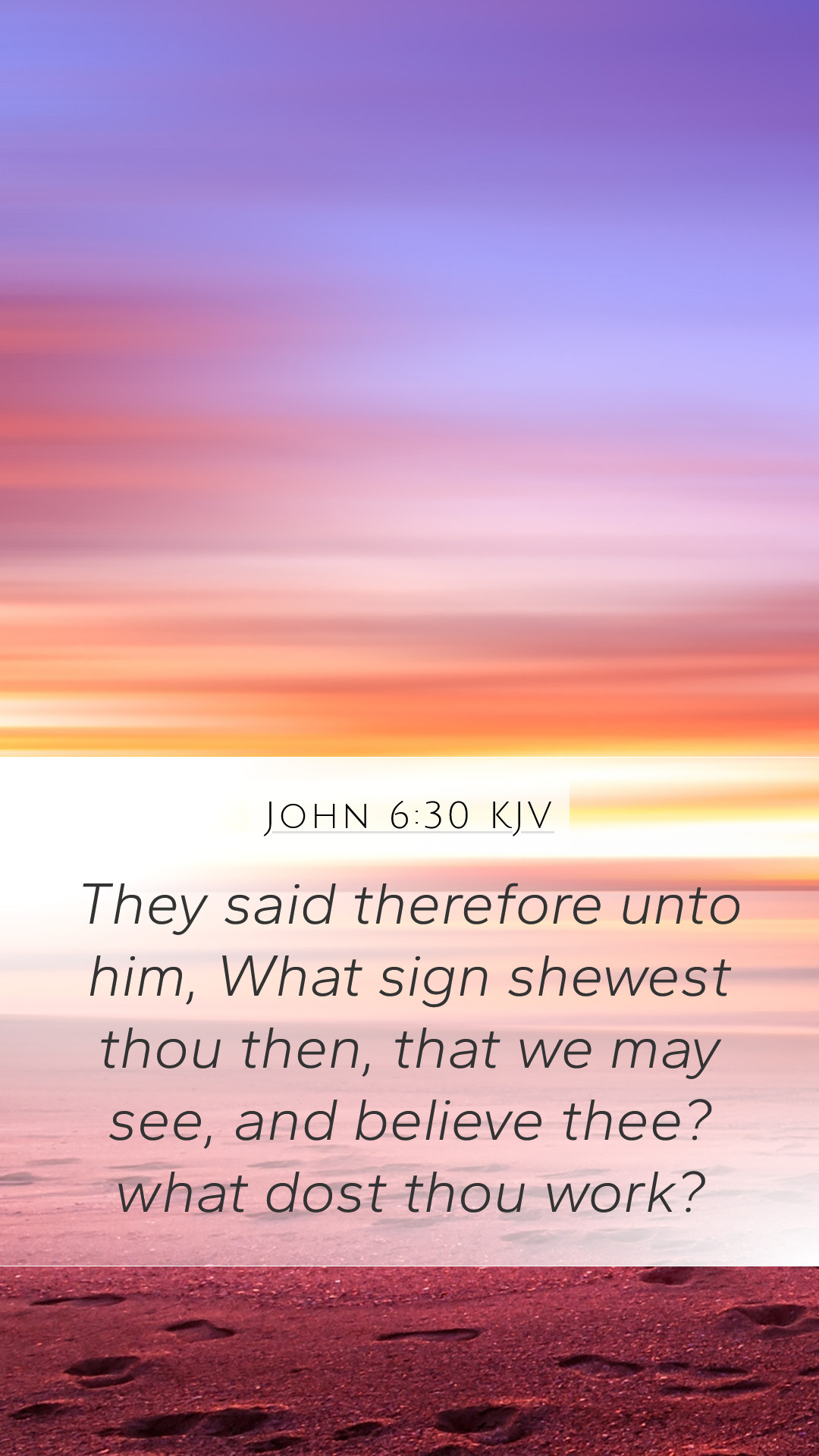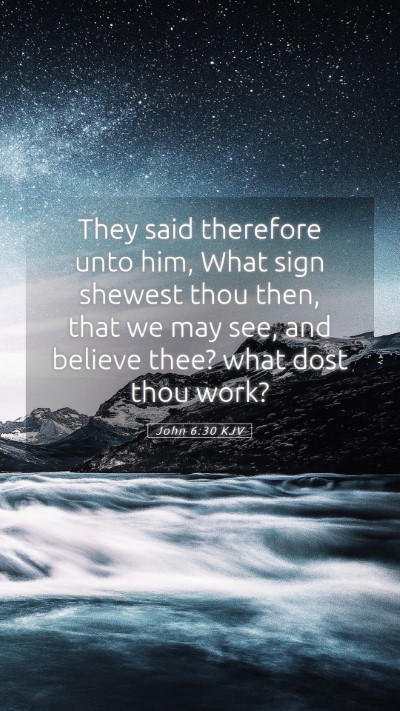Understanding John 6:30
John 6:30 is a significant verse in the Gospel of John, where the crowd asks Jesus for a miraculous sign to believe in Him. This inquiry unveils deep insights into the nature of faith, the expectation of signs, and the identity of Jesus as the Bread of Life.
Bible Verse: John 6:30
"Therefore they said to Him, 'What sign will You perform then, that we may see it and believe You? What work will You do?'" (John 6:30, NKJV)
Bible Verse Meanings and Interpretations
This verse sheds light on the challenges faced by Jesus as the crowd demands proof of His divine authority. Their question illustrates a common human tendency to seek tangible evidence before placing faith in spiritual truths.
Insights from Commentaries
- Matthew Henry: He emphasizes the faithlessness of the people, contrasting their request for a sign with the miracles they had already witnessed. Henry argues that true faith requires evidence beyond physical signs, rooted instead in the divine truth revealed by Christ.
- Albert Barnes: Barnes notes that the people’s request for a sign reflects a misunderstanding of Jesus’ mission. He explains that they were looking for a repeat of the manna in the wilderness, missing the fact that Jesus Himself is the ultimate provision from God.
- Adam Clarke: Clarke expounds on the idea that the crowd’s question reflects a transactional view of faith. They wanted a sign that would compel belief, rather than understanding that true faith is about receiving Jesus’ teaching and acknowledging His identity.
Key Themes in John 6:30
- The Expectation of Signs: The request for a miraculous sign evokes the historical context of the Israelites receiving manna, pointing to a lack of recognition of Jesus' previous miracles.
- Faith and Doubt: This encounter illustrates the struggle between belief and skepticism, showcasing how people often require tangible evidence to support their faith.
- Identity of Christ: Jesus’ answer to their query (not covered in this verse, but essential in the flow of Scripture) reveals His true identity and mission, namely, to present Himself as the “Bread of Life” that sustains the soul.
Bible Study Insights
The inquiry posed by the crowd in John 6:30 serves as an important starting point for deeper analysis of Jesus' teachings. It invites readers to reflect on their own beliefs and the nature of their faith. In the context of modern Bible study groups and online studies, this verse prompts meaningful discussions about how faith informs our understanding of divine provision and spiritual fulfillment.
Related Biblical Cross References
- Exodus 16:15: The provision of manna in the wilderness, establishing the backdrop for the crowd's expectations.
- John 6:32-35: Jesus identifies Himself as the true bread from heaven, reinforcing the significance of spiritual nourishment over physical signs.
- Matthew 12:38-40: Jesus rebukes a similar request for a sign, pointing to His resurrection as the ultimate proof of His divine authority.
Application of John 6:30
When contemplating this verse, individuals are encouraged to reflect on their own spiritual journeys. The desire for signs can sometimes hinder genuine faith. Instead of seeking miraculous proof, believers are called to seek a relationship with Christ that is rooted in trust and understanding. Engaging with this scripture in a personal Bible study can lead to profound insights and applications in everyday life.
Conclusion
John 6:30 serves as a pivotal moment in the dialogue between Jesus and His followers. It challenges the reader to rethink the foundations of their faith and the expectations they bring to their relationship with God. Through engaging with this verse, one can gain richer Bible verse explanations and commentary, leading to a deeper understanding of Scripture and its application to life today.


